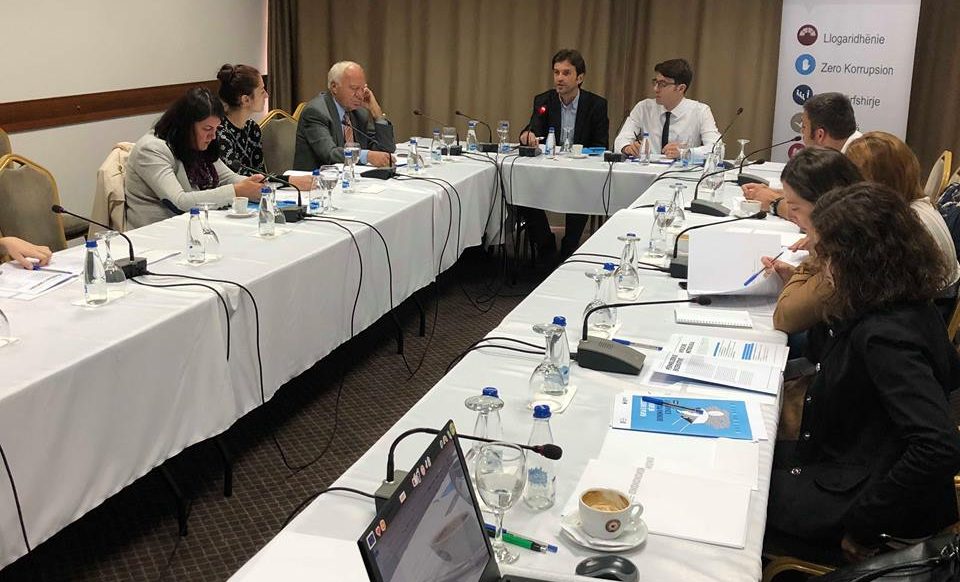


Kosovo Democratic Institute (KDI), as part of the “State Capture in the Western Balkans Region and Turkey” Project, implemented by the global network Transparency International, has published the report today “State Capture: Political Economy of Gravel”.
During the opening remarks, Florent Spahija from KDI highlighted that the main objective of the Project was to explore whether the Western Balkan countries show signs of the state capture phenomena. “There is no clear definition of the state capture” added Mr Spahija, but only a series of attempts by different scholars and academics to provide the most comprehensive definition. One of them defines the state capture as “a set of illegitimate (not necessarily illegal) practices that undermine the core democratic values in the interests of a narrow group of people”.
The large-scale post-war construction in Kosovo, followed by a vast increase in public investment in the road infrastructure, has had a tremendous impact on the value chain in the construction sector, increasing the demand for gravel. These developments led to a dramatic increase in river sand extraction by construction companies on riverbanks and quarry activities in the hills of Kosovo that have caused serious environmental damage and devastating effects on local economies and livelihoods.
“As quarrying continued and expanded, companies have acted in an environment of full impunity, completely disregarding environmental rules and norms and were allowed to do so through their political networks. Their influence extended as far as the appointment process in the key regulatory bodies resulting in a situation of virtual absence of oversight mechanisms. Although inspectors and the media have reported violations, little or no charges were pressed against the perpetrators and consequently a culture of impunity was fostered. The absence of judicial measures has forced KDI researcher to qualify it as a case of state capture as opposed to corruption” concluded Spahija.
Arben Kelmendi from KDI presented the recommendations of this report. Based on the findings, the report gives a set of general recommendations that seek the reduction of political interference, the strengthening of the regulatory bodies and oversight mechanisms responsible for gravel extraction, the increase of the level of transparency of the political party campaign funding, the full support to judicial duties and complete monitoring of the work of environmental inspectors.
The report also recommends that companies should refrain from illegal activities. “Companies involved in illegal stone quarries continue to engage in such activities even after being fined, because of the tremendous profit. Additional efforts and penalties are necessary to increase the pressure on companies’ involvement in unlawful practices,” explained Kelmendi.
Mr Kelmendi also stated that Kosovan civil society should be empowered, the data on environmental indicators updated and that commitments made by political elites as part of EU integration processes should be utilized to amount pressure on furthering the reform.
The project is financed by the European Commission and is implemented by Transparency International Offices in six Western Balkan countries (Kosovo, Albania, Montenegro, Macedonia, Serbia, Bosnia and Herzegovina) and Turkey.